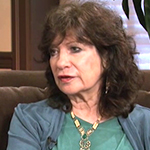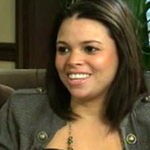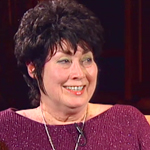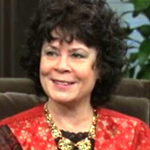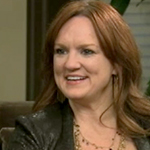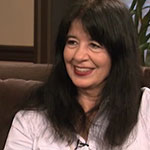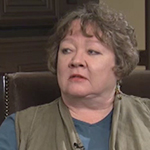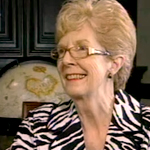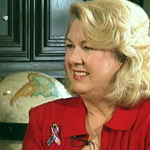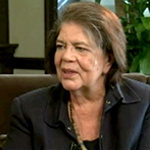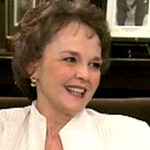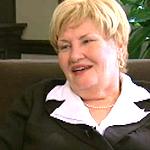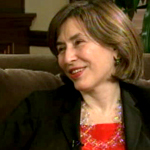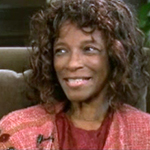
Women in Oklahoma History
Upcoming Events
Oklahoma Women’s History Conference
Saturday, March 1, 2025
Join us for the Oklahoma Women’s History Conference on Saturday, March 1, at the Oklahoma History Center. The event will include panel discussions featuring Edith Ritt-Coulter, Rilla Askew, Connie Cronley, and speakers from the Oklahoma Commission on the Status of Women and the Oklahoma Women’s Hall of Fame. Autumn Brown of the Clara Luper Civil Rights and the Oklahoma State University Archive’s Oklahoma Women’s Resources will give the keynote presentation. Find out more about this free event.
Oklahoma History Symposium
Saturday, May 3, 2025
The Oklahoma History Symposium will be held on Saturday, May 3, at the Oklahoma History Center. This year’s theme is “Oklahoma in Context.” Sponsored by the Oklahoma Historical Society, the symposium is a one-day event encompassing a range of historical topics pertaining to Oklahoma. It provides a venue for scholars, students, educators, public history professionals, and the interested public from across the state and region to share their work and interests with others. Award-winning filmmaker Loren Waters (Cherokee/Kiowa) will be our keynote speaker. Waters will share about her short documentary Meet Me at the Creek, which focuses on Rebecca Jim’s (Cherokee) efforts to restore Tar Creek in Miami. Find out more about this free event.
Visit Oklahoma Historical Society Museums and Historic Sites
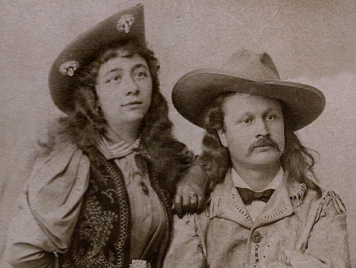
May Lillie was a sharpshooter, expert rider, and co-owner of a Wild West Show with her husband, Pawnee Bill. Learn more at the Pawnee Bill Ranch and Museum in Pawnee.
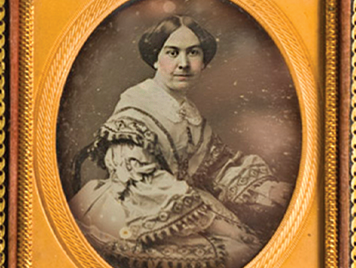
Amanda (shown here) and Minerva Murrell were both mistresses of Hunter’s Home. Find out about their lives, and the lives of the plantation’s enslaved women at Hunter’s Home in Park Hill.
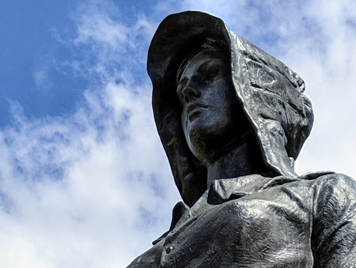
The Pioneer Woman Museum and Statue in Ponca City is dedicated to the enduring spirit of women—past, present, and future—who see no boundaries. Learn more at the Pioneer Woman Museum.
Women’s Suffrage

Individuals
- Kate Barnard
- Kate H. Biggers
- Winnie Branstetter
- Cora Diel
- Aloysius Larch-Miller
- Blanche Lucas
- Alice Robertson
- Frances Threadgill
Organizations and Topics
Manuscript Guides
Use our manuscript guides to discover the collections and materials in the OHS Manuscript Archives.
Women's Suffrage (PDF)
Equal Rights Amendment (PDF)
Online Exhibits
Women’s Suffrage in Oklahoma: This e-exhibit includes the story of suffrage in Oklahoma, activities for students, a glossary, and bibliography.
Votes for Women: 100 Years of Women’s Suffrage: One of our popular traveling exhibits is now available online.
Traveling Exhibit from the Oklahoma History Center
Votes for Women: 100 Years of Women’s Suffrage
The Chronicles of Oklahoma
Volume 98, No. 2 (Summer 2020)
The summer 2020 issue includes “‘An Appeal to Reason’: Women’s Suffrage in Oklahoma and Indian Territories, 1890–1907” by Linda D. Wilson, “‘O. C. Woman Will Picket’: Kate C. Stafford and the National Woman’s Party” by Tally D. Fugate, “Women in Tribal Politics: The Sac and Fox Nation of Oklahoma” by Regina Slaughter Gordon, and Notes and Documents exploring resources about women’s suffrage and women in politics at the OHS Research Center.
Copies are available in the Oklahoma History Center Museum Store. You may also purchase a copy online.
Volume 61, No. 2 (Summer 1983)
“No Job for a Woman,” by Bernice Crockett
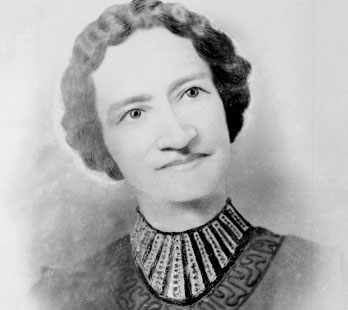
Drusilla Dunjee Houston
Civic Leaders, Educators, Politicians, and Trailblazers
Territorial Era and Early Oklahoma- Kate Barnard
- Mabel Bassett
- Kate H. Biggers
- Winnie Branstetter
- Judith Carter
- Isabel Cobb
- Alice Brown Davis
- Cora Victoria Diehl
- Julia Douglas
- Abbie B. Hillerman
- Drusilla Dunjee Houston
- Annette Ross Hume
- Roberta E. Lawson
- Lilah Denton Lindsey
- Lamar Looney
- Blanche Lucas
- Bessie McColgin
- Jane McCurtain
- Myrtle McDougal
- Carry Nation
- Kate Richards O’Hare
- Lola Clark Pearson
- Alice Robertson
- Sanapia (Mary Poafpybitty)
- Winona Sanger
- Lola Scott
- Sallie Sturgeon
- Frances Threadgill
- Clara Wilbanks Waters
The Twentieth Century and Beyond
- Hannah Atkins
- Stephanie Bice
- Ruth Margaret Muskrat Bronson
- Mary Fallin
- Lelia Foley-Davis
- Edith Kinney Gaylord
- LaDonna Harris
- Anita Hill
- Kendra Horn
- Jeane Kirkpatrick
- Patience Latting
- Wilma Mankiller
- Perle Mesta
- Vicki Miles-LaGrange
- Cleta Mitchell
- Mary Golda Ross
- Eula Pearl Carter Scott
- Juanita Kidd Stout
- Elizabeth Warren
- Gladys Warren
- Alma Wilson
- Dora Young
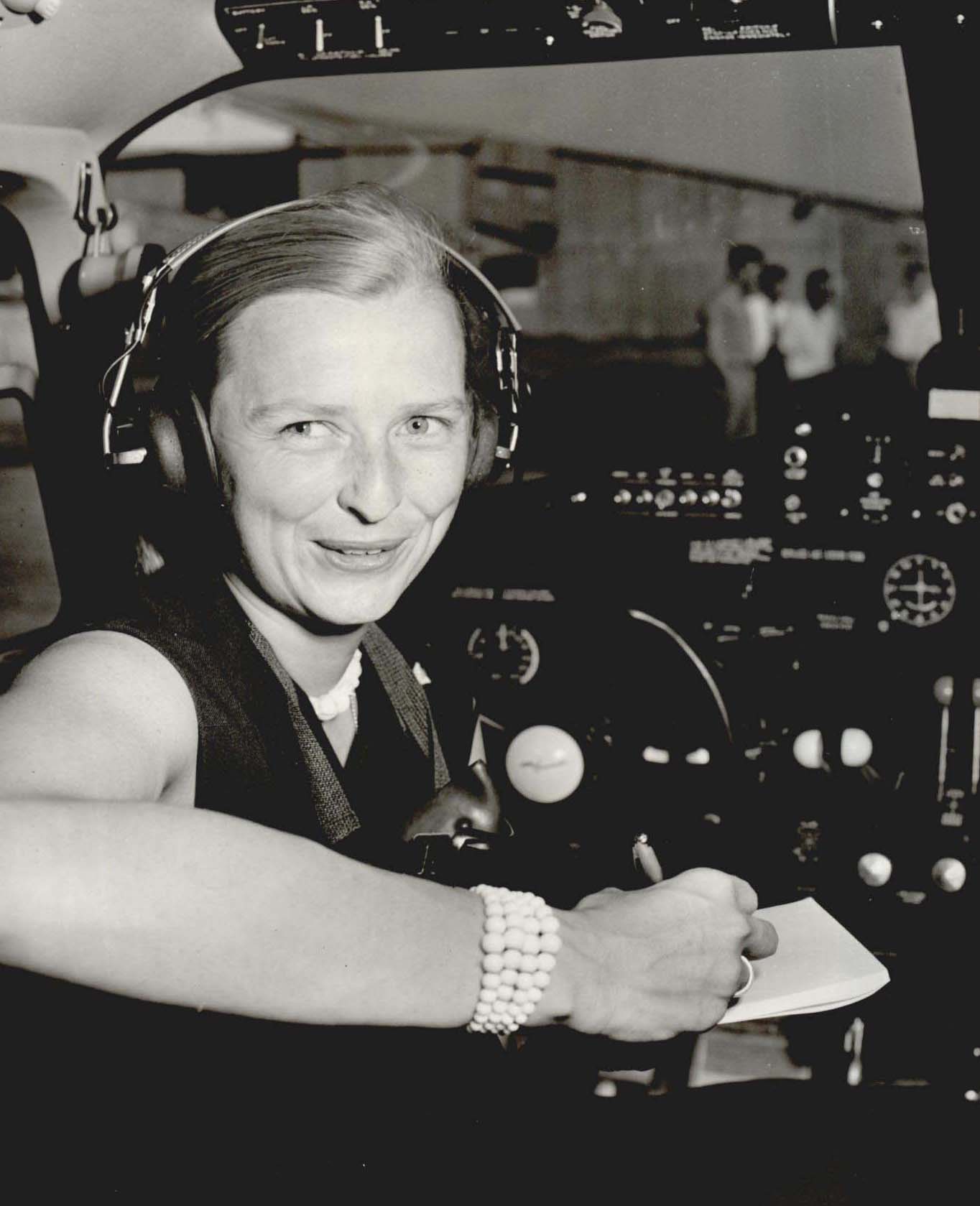
Jerrie Cobb
Exploring the Skies
Writers
Learn about some of Oklahoma’s celebrated female authors in the online exhibit Oklahoma Writers: A Literary Tableau.
Find more about Oklahoma’s writers and historians in The Encyclopedia of Oklahoma History and Culture
Artists
- Mary Blair
- Louise Fluke
- Joan Hill
- Vanessa Paukeigope Santos Jennings
- Ruthe Blalock Jones
- Augusta Metcalfe
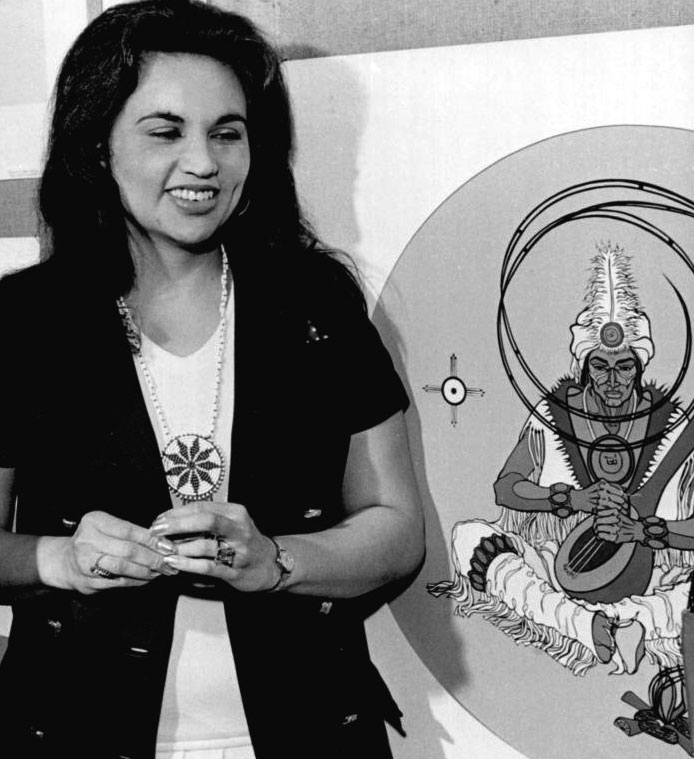
Joan Hill

Leona Mitchell, Wanda Jackson, and Tessie Mobley
Musicians
- Mae Boren Axton
- Anita Bryant
- Kristin Chenoweth
- Collins Kids
- Agnes Cunningham
- Wanda Jackson
- Reba McEntire
- Leona Mitchell
- Tessie Mobley
- Patti Page
- Mary Kay Place
- Jean Shepard
- Kay Starr
- “Uncle” Wallace and “Aunt” Minerva Willis
Actors and Performers
- Louise Allbritton
- Ataloa (Mary Stone McLendon)
- Nellie Bly Baker O'Bryan
- Kristin Chenoweth
- Yvonne Chouteau
- Joan Crawford
- Glenda Farrell
- Kay Francis
- Alice Ghostley
- Rosella Hightower
- Rochelle Hudson
- Jennifer Jones
- Darla Jean Hood
- Moscelyne Larkin
- Barbara Lawrence
- Rue McClanahan
- Reba McEntire
- Vera June Miles
- Lucille Mulhall
- Cathy O’Donnell
- Patti Page
- Gayla Peevey
- Mary Kay Place
- Maria Tallchief
- Marjorie Tallchief
- Te Ata
- Pamela Tiffin
- Alfre Woodard

“‘Anything You Can Do’:
American Cowgirl Lucille Mulhall,” Crossroads online publication
Learn about the evolution of women’s roles in the West and the birth of the American cowgirl.
Civil Rights Leaders
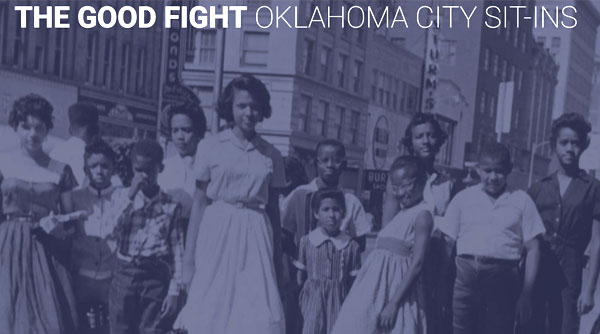
“The Good Fight,” Crossroads online publication
Hear firsthand accounts of Oklahoma’s sit-in movement and its leader—Clara Luper—from two women who were there.
“The Gendered Politics of Civil Rights” (2020)
Find more about civil rights leaders and history
in The Encyclopedia of Oklahoma History and Culture
Drusilla Dunjee Houston
Clara Luper
Ada Lois Sipuel Fisher
The Chronicles of Oklahoma
Volume 97, No. 3 (Fall 2019)
“An Unflinching Call for Freedom: Clara Luper’s Pedagogy at the Center of Sit-Ins,” by Rachel E. Watson
Volume 90, No. 4 (Winter 2012–13)
“Unforgotten Trailblazer: Nancy O. Randolph Davis,” by Gloria J. Pollard
Historic Places
The National Register of Historic Places
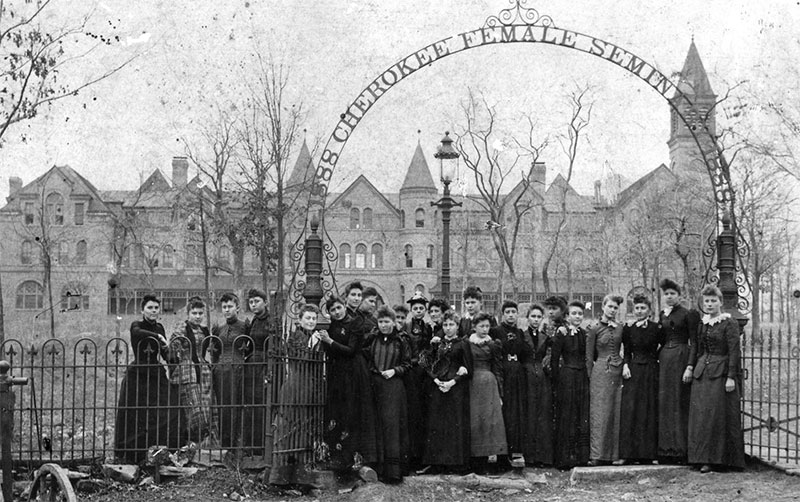
Listing in the National Register of Historic Places is an honorific designation that provides recognition, limited protection, and, in some cases, financial incentives for these important properties. The State Historic Preservation Office identifies, evaluates and nominates properties for this special designation.
Use the links below to view the National Register listing for these historic properties.
- Bacone College Historic District, Muskogee
- Mattie Beal House, Lawton
- Blue Hawk Peak Ranch, Pawnee
- Break O’Day Farm, Durham
- Brockway Community Center, Oklahoma City
- Cherokee Female Seminary, Tahlequah
- Dobson Family House, Miami
- Dwight Mission, Marble City
- First Cherokee Female Seminary Site, Tahlequah
- John and Mary Fuksa Farm, Bison
- Golda’s Mill, Stilwell vicinity
- International Temple Supreme Assembly Order of the Rainbow for Girls, McAlester
- Oklahoma College for Women Historic District, Chickasha
- Oklahoma County Home for Girls, Oklahoma City
- Frank and Jane Phillips Home, Bartlesville
- Pioneer Woman statue, Ponca City
- Rock Mary, Hinton vicinity
- USPS Madill, Madill
- USPS Watonga, Watonga
- White Cloud Lodge, Perkins vicinity
- Y Chapel of Song, Edmond
- Zaneis School Teacher’s Dormitory, Healdton vicinity
Historical Markers
- Alice Robertson, Muskogee County - Alice Robertson, a member of the Daughters of the American Revolution, was Oklahoma's first female member of Congress, elected in 1920 from the Second Congressional District for one term. Located in Greenhill Cemetery in Muskogee (DAR).
- Black Iron Fountain, Kay County - The first watering fountain in Ponca City once stood near the Marland Estate stables. Louise Fluke, the designer of the Oklahoma state flag, repainted the reliefs on the fountain. Located at the intersection of Fourth Street and Grand Avenue in Ponca City (DAR).
- Bloomfield Academy, Bryan County - Bloomfield Academy, a seminary for Chickasaw girls, was established in 1853 by authority of the Methodist Missionary Board. Located on OK-299, one and a half miles south of Achille.
- Carry A. Nation, Dewey County - Carry Nation and her husband David lived in a log cabin on this site after the opening of the Cheyenne-Arapaho lands in 1892. After moving to Medicine Lodge, Kansas, in 1899, Nation began her famous crusade against liquor, including using a hatchet to smash saloons. Located on US-183 south of the intersection with US-60.
- Drummond Home, Osage County - Frederick Drummond immigrated to the United States from Scotland in the 1880s. After moving to the Osage Reservation, he established the Hominy Trading Company in 1904 and expanded his operations into the cattle business and buying and leasing American Indian lands, eventually building one of the state's largest ranches. Drummond and his wife, Addie, constructed this substantial Victorian home in 1905. Most of the original fine furnishings, as well as family records, photographs, and other personal items are still in the house. Located at 305 North Price in Hominy.
- Emahaka Mission, Seminole County - A school for Seminole girls was established in 1894. Alice Brown Davis, who later became first female chief of the Seminole, was the superintendent in 1908. The school was abandoned in 1914. Located five miles south of Wewoka at the intersection of US-270 and State-56.
- Emet, Johnston County - One of the first towns established in Johnston County, Emet originated when the Chickasaw Council House was moved from Boggy Depot to this area, two miles east of the Pleasant Grove Mission in the early 1850s. The Pleasant Grove Mission School was established by the Methodist Episcopal Church in 1844 to serve the children of the Chickasaws. Located Chickasaw White House.
- Fairfield Mission, Adair County - The mission building was completed in 1829 by Dr. Marcus Palmer, a missionary to the Cherokees. The mission stood in a grove of large trees a few hundred feet east of the cemetery now known as McLemore Cemetery. Noted missionaries and teachers at the mission included Elizur Butler, Charles C. Torrey, Clarissa Palmer, Lucy Butler, and Esther Smith. A circulation library, possibly the state's first, was established at the mission in 1832. Located at the junction of OK-100 and US-59 on the south edge of Stilwell.
- Garland Cemetery, McCurtain County - This cemetery was the family burying ground for prominent Choctaws. Chief Samuel Garland established a plantation here after his arrival on the Trail of Tears in the 1830s. Buried here are Chief Garland and his mother-in-law, Sophia Pitchlynn, who was the mother of Choctaw Chief Peter Pitchlynn. Located on OK-3, three miles west of the Oklahoma–Arkansas border.
- Kunc Family Homestead/Bradbury Corner Historical Marker, Oklahoma County - James and Katherine Kunc and son William made the run and homesteaded a quarter section on the southwest corner of Second and Sooner on April 22, 1889. In 1923 Everett Bradbury purchased one acre of land on the northeast corner of the homestead and established a campground and filling station. This intersection was the junction of US Highway 66 and US Highway 77 and became known as Bradbury Corner. Located on Second Street at the entrance to Holiday Inn Express.
- Louise Fluke Memorial, Pottawatomie County - Louise Funk Fluke (1900–1986), designer of the state flag of Oklahoma, was born in Arkansas and raised in Shawnee. She entered the winning flag design in a statewide contest in 1925 through the Wunagisa Chapter, Daughters of the American Revolution. Located at 614 East Main, Shawnee)
- Millie Durgan, Kiowa County - Millie Durgan was 18 months old when she was captured by Kiowa Indians in the Elm Creek Raid in north Texas in 1864. She was adopted by the Kiowa tribe and later married a Kiowa man. Located at the intersection of OK-9 and OK-115, one mile east of Mountain View.
- Nuyaka Mission, Okmulgee County - Through the efforts of educator Alice Robertson, who also served as Oklahoma’s first female member of Congress, the mission was established by the Presbyterian Board and the Creek Nation in 1882. Robertson also founded Henry Kendall College, which became the University of Tulsa. Located on OK-56, nine miles west of Okmulgee.
- Oklahoma City DAR Chapter, Oklahoma County - The Oklahoma City Chapter of the Daughters of the American Revolution was organized in 1904 in the home of Mrs. Robert Carpenter. Located at 212 Northwest 15th Street in Oklahoma City (DAR).
- Pine Ridge Mission, Choctaw County - Presbyterian minister Reverend Cyrus Kingsbury established the Pine Ridge Mission in 1836. The Choctaw Council established a school for girls, Chuahla Female Seminary, at the mission in 1842, which Kingsbury supervised. The school was closed during the Civil War. Located on east side of Red Road 1/2 mile north of Doaksville/Fort Towson Cemetery.
- Post Office at Loretta, Texas County - Texhoma was originally called Loretta after Loretta Cain, the first postmaster. The town’s name was changed in 1902. Located on US-54 on the east side of Texhoma.)
- Red Wheat Allotment, Custer County - Prior to the Cheyenne and Arapaho Reservation land run of April 19, 1892, this quarter-section of land was allotted to a Cheyenne woman named Red Wheat. Mennonite emigrants from Russia introduced ‘Turkey red’ winter wheat to northwest Oklahoma. Located on OK-66 at the east edge of Clinton.
- Sophia Folsom Pitchlynn, McCurtain County - In this cemetery is the grave of Sophia Folsom Pitchlynn, wife of Major John Pitchlynn, who served under General George Washington in the Revolutionary War. Located in Garland Cemetery near the town of Tom (DAR).
- St. Louis School, Osage County - This Osage girls school was founded in 1887 by Mother Mary Katharine Drexel, a Philadelphia heiress who entered a convent as a young woman and used her fortune to support educational institutions across the southern US and the Bureau of Catholic Indian Missions. The school’s original frame building burned in 1889 and was replaced by a four-story stone building. In 2000 Mother Katharine was named a saint by Pope John Paul II. Located just off US-60 south and west of Clear Creek Bridge in Pawhuska.
- Stella Friends Academy, Alfalfa County - A group of Quakers settled this part of the Cherokee Outlet in 1893. A primary school opened in a sod house and was named for the first teacher, Stella Howard. Within four years a high school was built. The school closed in 1922 after railroad expansion brought new towns and free schools into the area. Located on OK-11, two miles east of the junction with US-64, north of Cherokee.
- Tullahassee Mission, Wagoner County - Tullahassee was established as a Creek mission by Presbyterian Reverend R. M. Loughridge in 1848. Alice Robertson, later Oklahoma's first congresswoman, was born here. Located on US-69, 1/4 mile north of Arkansas River.
- Tuskegee Baptist Church - McIntosh County - Annie Walker Armstrong was corresponding secretary of the Woman’s Missionary Union of the Southern Baptist Convention which sent missionaries to the area. The church was founded here in 1867. Nearby is another marker that notes the rock that Armstrong used to mount her horse during a visit to the church in 1900. Located at the intersection of OK-9 and NS-411 (OBHC))
- Wheelock Academy, McCurtain County - This boarding school for Choctaw orphan girls was completed in 1884 northeast of the Wheelock Church. Five of the buildings survived and are being restored by the Choctaw Nation. Located on US-70, one and a half miles east of Millerton.
- Wynona, Osage County - A post office was established in 1903 in Wynona. The name is a Sioux word meaning "first-born daughter." Located on OK-99, eight miles south of Pawhuska.
Researching Women in Oklahoma History
- Anti-Suffrage Association
- Business and Professional Women’s Clubs
- Equal Rights Amendment
- Governor’s Commission on the Status of Women
- Harvey Girls
- Home Demonstration Clubs
- Land Runs, Women in
- League of Women Voters
- National Woman’s Party
- Ninety-Nines
- Oklahoma Federation of Women’s Clubs
- Oklahoma Woman
- Oklahoma Woman’s Suffrage Association
- Pioneer Woman
- Suffrage Amendment
- WAVES
- Woman’s Christian Temperance Union
- Women
- Women and Work
- Women and the World Wars
- Women’s Club Movement
- Women’s Emergency Relief
- Women’s Legislative Council
Photographs, Manuscripts, Oral Histories, Books, and Periodicals
OHS Research Center online catalog
The Gateway to Oklahoma History
Manuscript Guides
Equal Rights Amendment (PDF)
Women’s Clubs (PDF)
Women’s Suffrage (PDF)
Resources for Educators, Parents, and Students
E-Exhibit
Women’s Suffrage in Oklahoma
Traveling Exhibits
Bring a traveling exhibit to your school, library, church, or local community center.
Votes for Women: 100 Years of Women’s Suffrage
Women of Oklahoma
Women of Oklahoma trunk
Learn about the notable women of Oklahoma through activities and items that bring to life not only the stories of Oklahoma women, but how they have shaped the state and the nation.
View trunk contents description.
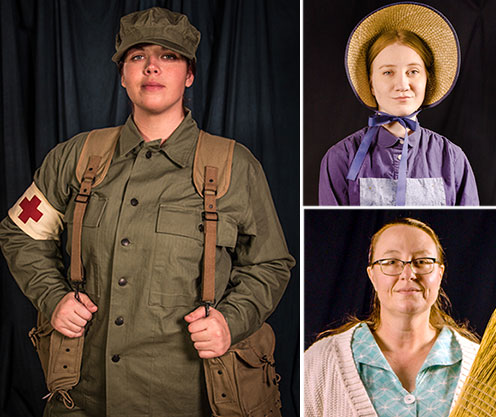
History Alive! Outreach
Bring a virtual living history program to your classroom or organization. Visit the History Alive! page for more information.
Teacher Resource Guides correlating to US History Academic Standards
USH.2.1 Evaluate the transformation of American society, economy and politics during the American Industrial Revolution.
D. Analyze major social reform movements including the Women's Suffrage and Temperance Movement and the leadership of Susan B. Anthony, Alice Paul, and Jane Addams.
USH.3.2 Evaluate the long-term impact of America's entry into World War I on national politics, the economy, and society.
B. Analyze the impact of the war on the home front including the use of propaganda, women's increased role in industry...
USH.5.1 Describe the transformations in American society and government policy as the nation mobilized for entry into World War II.
C. Examine President Franklin Roosevelt's Day Which Will Live in Infamy speech and America's conduct of the war, including the role of women and minorities in the war effort...
Audio and Video
A Very OK Podcast
“A Little Freedom is a Dangerous Thing,” August 2023
“The Five Moons,” March 2024
“Our Good Angel, Kate,” August 2022
“Votes for Women!,” February 2023
“Women in Broadcasting,” March 2021
Pawnee Bill Ranch Podcast
“May Lillie,” March 2013
The Clara Luper Show
Listen to select episodes on YouTube
This Land is Herland series
“The Gendered Politics of Civil Rights” (2020)
“Contested Notions of Equality” (2020)
“The Fluidity of Power” (2020)
The Chronicles of Oklahoma Online
Volume 97, No. 3 (Fall 2019)
“An Unflinching Call for Freedom: Clara Luper’s Pedagogy at the Center of Sit-Ins,” by Rachel E. Watson
Volume 96, No. 4 (Winter 2018–19)
“Cherokee National Female Seminary Principal Teacher Etta Jane Rider and Her Assistant Teachers, 1901–04,” by James G. McCullagh and James S. Davis
Volume 94, No. 1 (Spring 2016)
“The YWCA’s Y-Chapel of Song and the Central Plate” by Patrick H. Salkeld
Volume 93, No. 1 (Spring 2015)
“Rooted in the Plains: Oklahoma Women, Community, and the Dust Bowl,” by Shelly Lemons and Steven Knoche Kite
Volume 92, No. 4, (Winter 2014–15)
“Mary Alice Hearrell Murray: A Chickasaw Girl in Indian Territory,” by Linda Williams Reese
Volume 90, No. 4 (Winter 2012–13)
“Unforgotten Trailblazer: Nancy O. Randolph Davis,” by Gloria J. Pollard
Volume 90, No. 2 (Summer 2012)
“Communists, Poetry, and Oklahoma History: The Life of Zoe Agnes Stratton Tilghman,” by Mallory Newell
Volume 90, No. 1 (Spring 2012)
“Vilona P. Cutler: Humanitarian, Activist, and Educator,” by Gregory N. Pierson
Volume 88, No. 4, (Winter 2010–11)
“Planting the ‘Long-Rooted Grass’: The Eufaula Boarding School for Girls, 1910–1962,” by Linda Ford Wendel
Volume 88, No. 3 (Fall 2010)
“Preaching in the ‘Open Air’: The Ministries of Early Pentecostal Women Preachers in Oklahoma,” by Kristen D. Welch
Volume 81, No. 3 (Fall 2003)
“‘She Would Raise Hens to Aid War’: The Contributions of Oklahoma Women during World War I,” by Melanie Rich
Volume 78, No. 2 (Summer 2000)
“Kate Barnard: The Story of a Woman Politician,” by Linda Edmondson and Margaret Larason
Volume 77, No. 4 (Winter 1999–2000)
“‘Dear Miss Debo’: The Correspondence of E. E. Dale and Angie Debo,” by Richard Lowitt
Volume 77, No. 2 (Summer 1999)
“Mrs. Oliver O. “Mamie” Hammonds: The ‘She-svengali’ of Oklahoma,” by Janel A. Mattingly
Volume 75, No. 1 (Spring 1997)
“‘Fortunate Enough and Plucky Enough’: The Unattached Women of the Cherokee Outlet,” by Debbie Kindt Michalke
Volume 75, No. 2 (Summer 1997)
“Mary Rice Greenfield,” by Joyce Waggoner
Volume 73, No. 3 (Fall 1995)
“Jerrie Cobb, Aviation Pioneer,” by Debbie Michalke
Volume 73, No. 2 (Summer 1995)
“Mollie Shepherd, Indian Columnist,” by Carol J. Woitchek
Volume 70, No. 3 (Fall 1992)
“Alice’s Restaurant: Expanding a Woman’s Sphere,” by Maitreyi Mazumdar
Volume 69, No. 4 (Winter 1991–92)
“Preparing Women for the National Crisis: The Role of Oklahoma A&M College,” by Susan L. Allen
Volume 69, No. 3 (Fall 1991)
“Emily Blanton Smith: Educator with Vision,” by Glyna Olson with Leo Kelley
Volume 69, No. 1 (Spring 1991)
“Wheelock Female Seminary, 1842–1861,” by Justin D. Murphy
Volume 67, No. 4 (Winter 1989–90)
“Ann Florence Wilson: Matriarch of the Cherokee Female Seminary,” by Devon Abbott
Volume 64, No. 2 (Summer 1986)
“Diana, Tiana or Talihina? The Myth and the Mystery of Sam Houston’s Cherokee Wife,” by Stan Hoig
Volume 63, No. 4 (Winter 1985–1986)
“Edith Force Kassing: Scientist With a Gift for Teaching,” by John S. Tomer
Volume 61, No. 3 (Fall 1983)
“Kate’s Quarter Section: A Woman in the Cherokee Strip,” by Henry Kilian Goetz
Volume 61, No. 2 (Summer 1983)
“No Job for a Woman,” by Bernice Crockett
Volume 60, No. 3 (Fall 1982)
“Myrtle Archer McDougal: Leader of Oklahoma’s ‘Timid Sisters,’” by Marilyn Hoder-Salmon
Volume 60, No. 2 (Summer 1982)
“Twin Territories: The Indian Magazine and Its Editor, Ora Eddleman Reed,” by Daryl Morrison
Volume 60, No. 1 (Spring 1982)
“Miss Edith Johnson: Pioneer Newspaper Woman,” by Naomi Taylor Casey
Volume 59, No. 2 (Summer 1981)
“‘Woman with a Hatchet’: Carry Nation Comes to Oklahoma Territory,” by Mary Ann Blochowiak
Volume 57, No. 2 (Summer 1979)
“A Civil War Experience of Some Arkansas Women in Indian Territory,” edited by LeRoy H. Fischer
Volume 57, No. 1 (Spring 1979)
“Girl Scouting in Stillwater, Oklahoma: A Case Study in Local History,” by Lynda M. Sturdevant

